Laying the Basestone for a Monument to Members of Orthodox Brotherhoods in Levashov
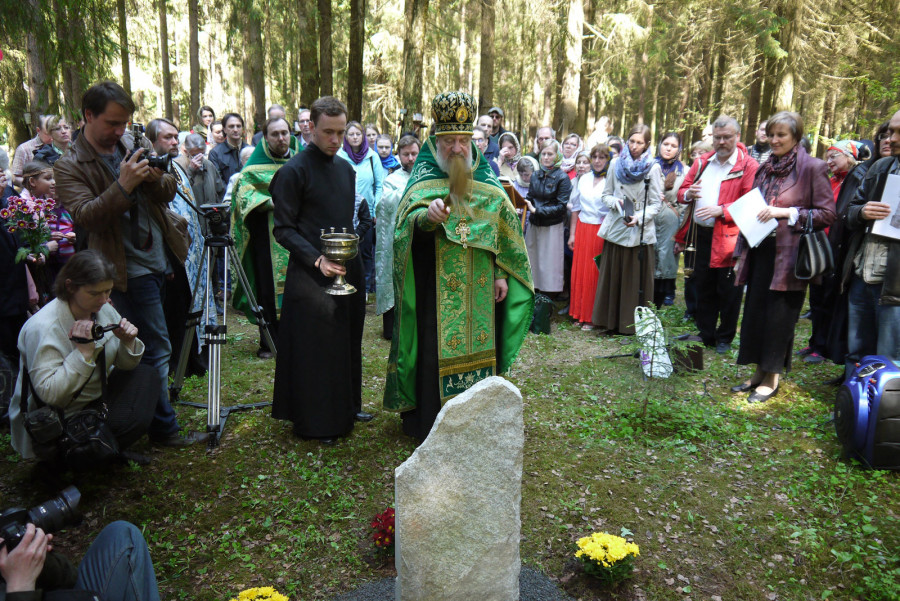
The Monument will be erected using funds from an “Orthodox Initiative” grant, as well as from private donors, and is due to be completed in 2018, the 100th anniversary of the revival of the brotherhood movement in Russia. The idea has the blessing of the Metropolitan Barsanuphius of St. Petersburg and Ladoga.
It was brotherhoods and spiritual organizations, in particular, who took upon themselves the task of defending the church against its godless persecutors in the first years of Soviet power. Some brotherhoods had existed before the Revolution, but many were formed in response to the epistle of Patriarch Tikhon, which called for believers to “arise and defend our Abused and Offended Holy Mother” Church, and swiftly form spiritual unions, which can withstand external pressure with the strength of their internal holy inspiration.” In Petrograd, for instance, a brotherhood for the defense of the sacred objects of the Alexander Nevsky Cathedral protected this church from the invasive incursions of the Bolsheviks. Members of the Alexander Nevsky, Spassky, Ekaterinsky, Andreevsky and other brotherhoods actively worked at both education and charity / alms giving. The self-sacrificial service of the brothers could only be stopped through direct repression such as arrest, exile and execution.
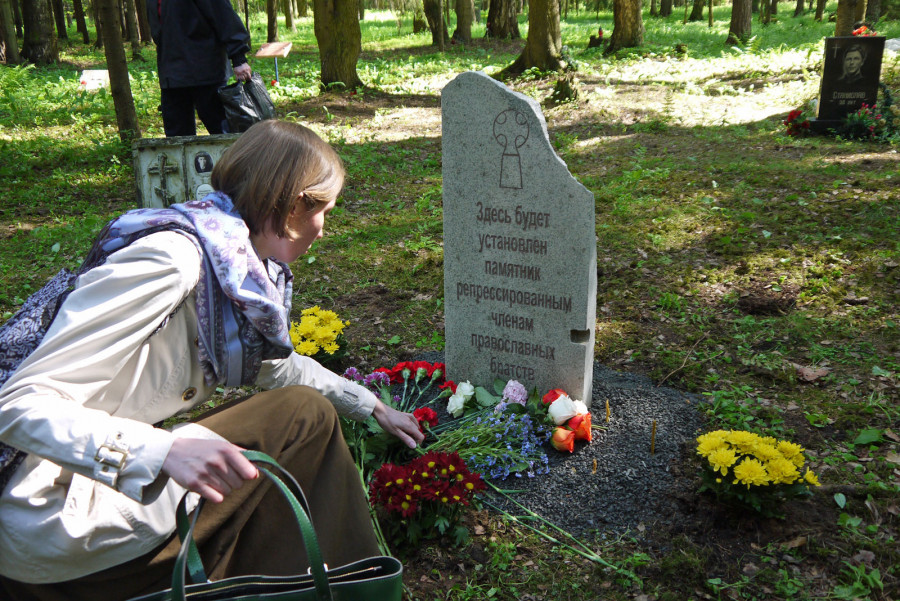
Yulia Balakshina, the head of the Brotherhood of St. Peter, which initiated the monument project, explained that its establishment is part of the Calling Our Nation to Repentance Initiative, which has already been active across Russia for six months. People of different professions, faiths and even non-believers are participating in the Repentance Initiative.
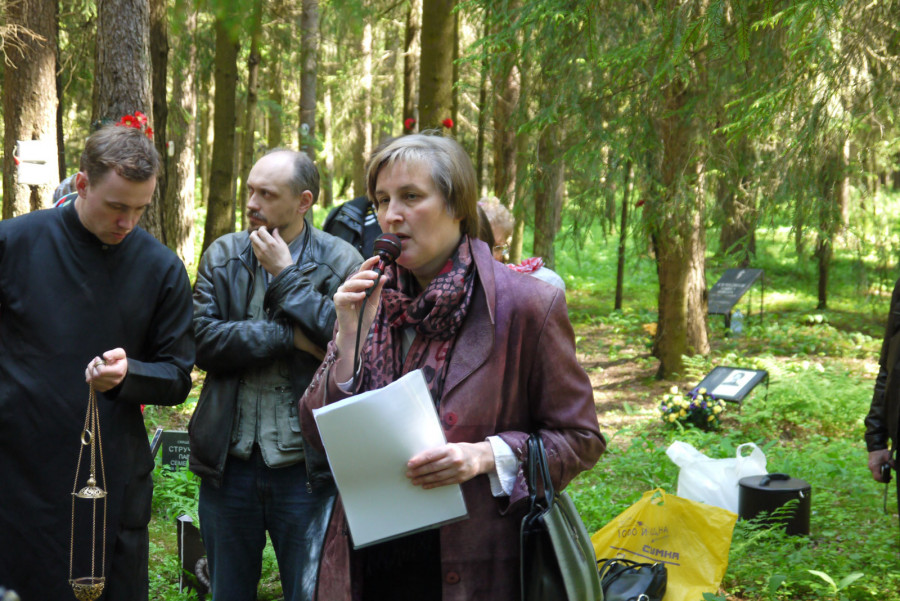
A member of the Transfiguration brotherhood, Maria Patrusheva, explained that the monument would take the form of a cross and have a structural frame bearing the names of those who suffered for their faith. In addition, the monument will include space for additional names to be added in future, as the names of brothers and sisters who suffered continue to be discovered.
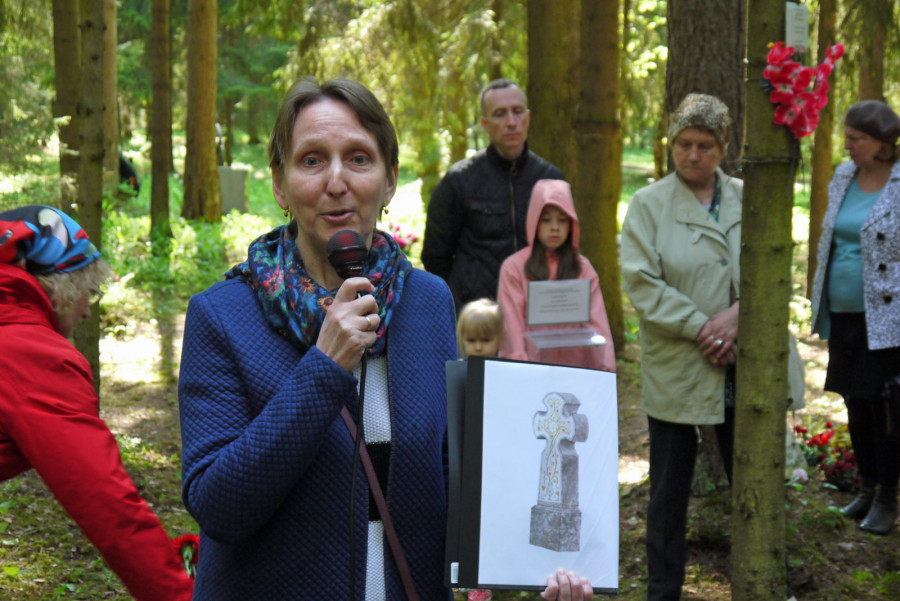
At the ceremony celebrating the laying of the basestone, prayers blessing the beginnings of a good work were lead by Fr. Alexander Budnikov, the Priest in Charge of the Vyborg District and Head Priest at the Church of the Prophet Elijah (na Porokhovikh) in St. Petersburg, assisted by Fr. Constantine Morozov of the same church, the Head Priest of the Church of Alexander Nevsky in the village of Alexandrovka, Fr. Mikhail Vladimirov, and a Priest from Holy Trinity Church in Archangelsk, Fr. Pavel Bibin. Prayers of blessing were followed by a litany, at which all the known names of local brotherhood members who suffered at the hands of Soviet repression were read out.
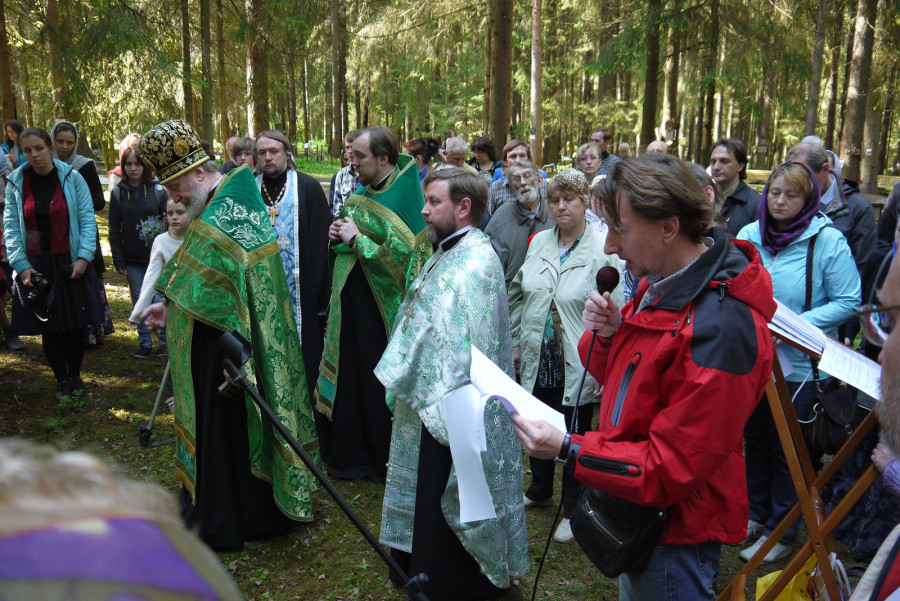
“We are in a unique place, standing on the bones of tens of thousands of tortured people. It is possible to say that this is one of the “Golgothas” of our Fatherland. Many of their names are still unknown – some may come to light through work in the archives – but that which is unknown to us is known to God,” said Fr. Alexander Budnikov. “They say that there was very little repression and that only the “fifth column” was destroyed, that they were preparing for war. What tripe we suffer from our modern pseudo-historians and pseudo-thinkers! It is heart-wrenching! It is enough to read Alexander Solzhenitsyn’s GULAG Archipelago, if you want to be sure there was really repression. We won’t imitate this sort of attitude and won’t turn our children into John Does who are unaware of their heritage. After all, it’s important not only to celebrate victories, but also not to forget the tragedies in the pages of our history.”
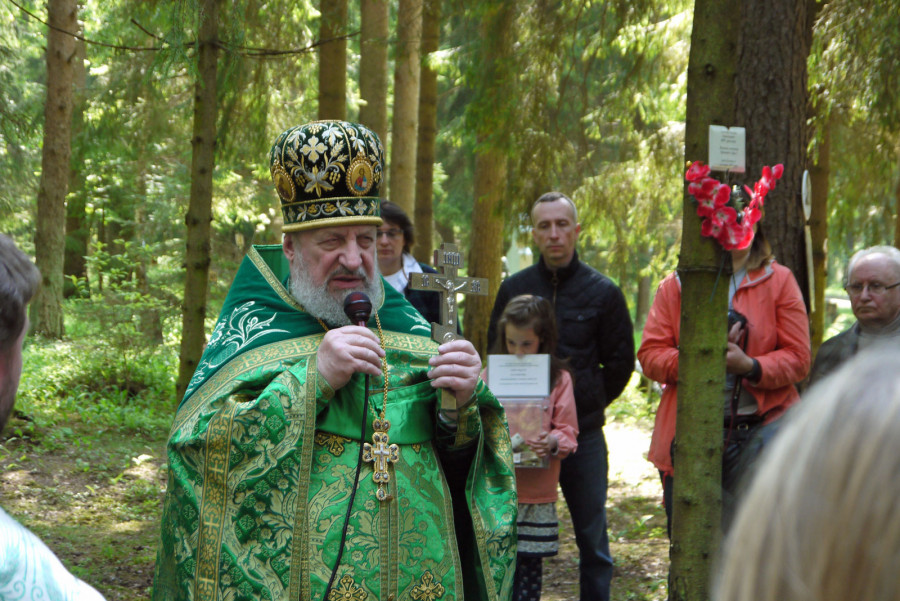
Fr. Pavel Bibin, a member of the Transfiguration Brotherhood, noted that we have come to a point where there are practically no living witnesses to the podvigs of the new martyrs: “The Church is in need of revival and renewal. We aren’t only trying to bring back historical memory here. Rather, we really believe in the action of God, which is ongoing in this world and will never come to an end. The inheritance of the 20th c. is a heavy inheritance, but this doesn’t mean that the Lord is not capable of changing our lives, our Church and our country.”
The creator of the 13-volume “List of Leningrad Martyrs”, Anatoly Razumov, calls us to make sites of Soviet evil-doing known to every inhabitant of our country. Such places as Levashovo near St. Petersburg, Sandarmokh near Medvezhegorsk, Krasnij Bor near Petrozavodsk, Sekirnaja Gora at Solovki, Butovo and Kommunarka in Moscow, Dubovka near Voronezh, Zauraljnaja Roscha in Orenburg, Mednoje near Tverj, Katynj near Smolensk, Bykovnja near Kiev, Kurovnja near Minsk, are already remembered in this fashion.
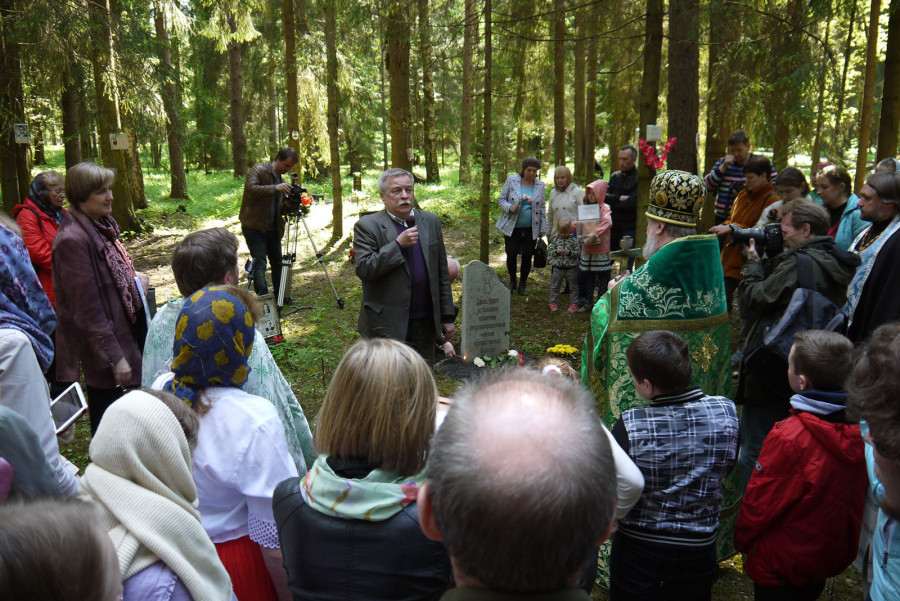
After the ceremony at which the basestone was laid, those who wish were able to take a tour of the Levashov Cemetery, led by Anatoly Razumov.
Prepared by Darya Makeeva, using materials from the site of the St. Petersburg Diocese.